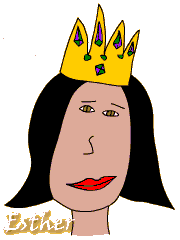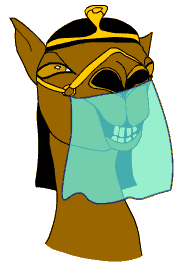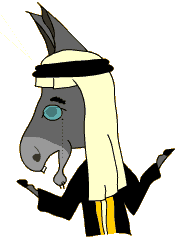
In Greek manuscripts of the Bible, the Book of Esther has six expansions totaling 107 verses. These additions were removed by Jerome in the 4th century CE and placed at the end of Esther, and now they are contained in the Apocrypha.

It's like these additions often seek to fill in the gaps, making the story come totally to life. For example, in Esther we know that the king of Persia, Ahasuerus, sent out letters, first ordering the massacre of the Jews, and then allowing the Jewish dudes to save and defend themselves. In two of the additions, we get to read the content of these letters. Isn't that right Esther?

Yes Mike. But did you know in the Masoretic text, there is no mention of God or religious practices?

My darlings, I'm afraid I must plead ignorant. Imagine! A book in the Hebrew Bible that does not contain words such as "God," "Lord," or "prayer."

So in these additions, all three are mentioned several times.
Furthermore, you might be interested to learn, Cleopatra, that after the Hebrew version of Esther ends, there is an Apocryphal addition in which my uncle Mordecai remembers a dream he had that predicted all of the previous events. The purpose is to show that the Book of Esther is a genuine revelation from God.

Wow, my darlings. I do remember now, come to think of it, that there is mention of Cleopatra in the Additions to Esther.

You're quite right. Only she's not a camel. The additions end by saying that Lysimachus of Jerusalem translated the story in the fourth year of the reign of Ptolemy and Cleopatra. Most scholars think this is in reference to Cleopatra II who married her brother Ptolemy VI. The more famous Cleopatra is...

Elizabeth
Taylor?
Dude! It's Cleopatra VII, the Ptolemaic queen who hooked up with Julius Caesar and Mark Antony and died from a gnarly snake bite. Don't be such a wise ass Methuselah. And speaking of wisdom, the next book in the Apocrypha is about some wise sayings from the smartest dude that ever lived, Solomon.
